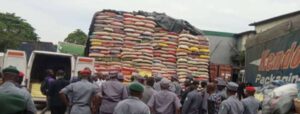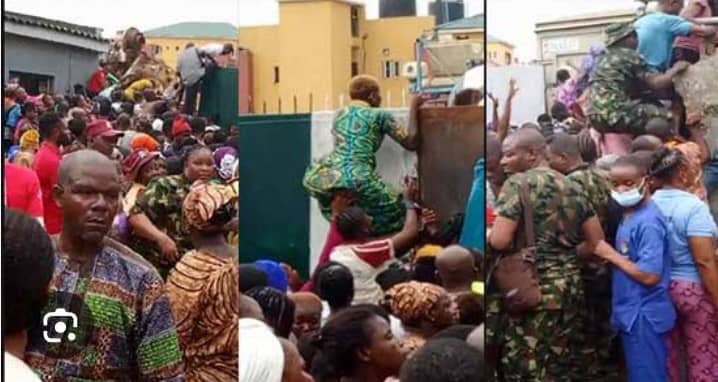Lessons from Nigeria Customs Service Subsidized Rice Distribution Tragedy
By Taiwo Olapade
The decision of the Nigeria Customs Service (NCS) to suspend its subsidized food distribution initiative did not come as a surprise to many, especially following the stampede that claimed at least seven lives at its Yaba, Lagos Zonal office on Friday, February 23.
The avoidable tragic incident occurred largely due to a stampede occasioned by the lack of proper crowd control measures at the center.
Many Nigerians received the news of the subsidized sale of 25kg bags of rice at ₦10,000 by the Nigeria Customs Service with great delight at a time when a 50kg bag of Rice is sold close to ₦80,000 in the market.

There are many lessons for us as a people and for the NCS to learn from this tragic incident. However, the possibility of sabotage cannot be fully ruled out in this regard. I say this because the people whose items for distribution were confiscated will not be happy to see them distributed at giveaway prices.
Closely related is the issue of the wholesalers of rice who may also want to throw spanners in the way of the exercise, which will affect their sales and ultimately force down the price of rice in the market.
You will recall that on May 28, 2020, no fewer than 31 people scrambling for free food and gifts at a new generation church in Port Harcourt, Rivers State, were feared dead in a stampede.

The church, Kings Kingdom Assembly, was said to have invited members of the public for its fourth edition of free gifts and distribution of food items. Sadly, the event ended in tears and sorrow.
A similar tragedy occurred way back in March 2014 when the Nigeria Immigration Service recruitment exercise at the National Stadium in Lagos turned tragic and claimed sixteen lives, while scores were left seriously injured.
The NIS, during the tenure of Senator Abba Moro as the Minister for Interior, had announced plans to recruit 400 personnel, which brought potential job seekers from 36 States and the FCT to converge in Lagos.
The major causes of death were overcrowding, stampede, exhaustion, and lack of crowd control mechanism.
The Nigeria Customs Service must also have learned its lessons from the exercise and adjust where necessary by the time the subsidized food distribution resumes.
It is advised that the NCS decentralizes the distribution of the subsidized seized food items to various local governments or open spaces with security at hand to prevent any chaotic situation.

No amount of money paid as damages or compensation for the lives lost will match its values; however, the bereaved families will have a sense of recognition if the Nigeria Customs Service extends hands of fellowship to them.



